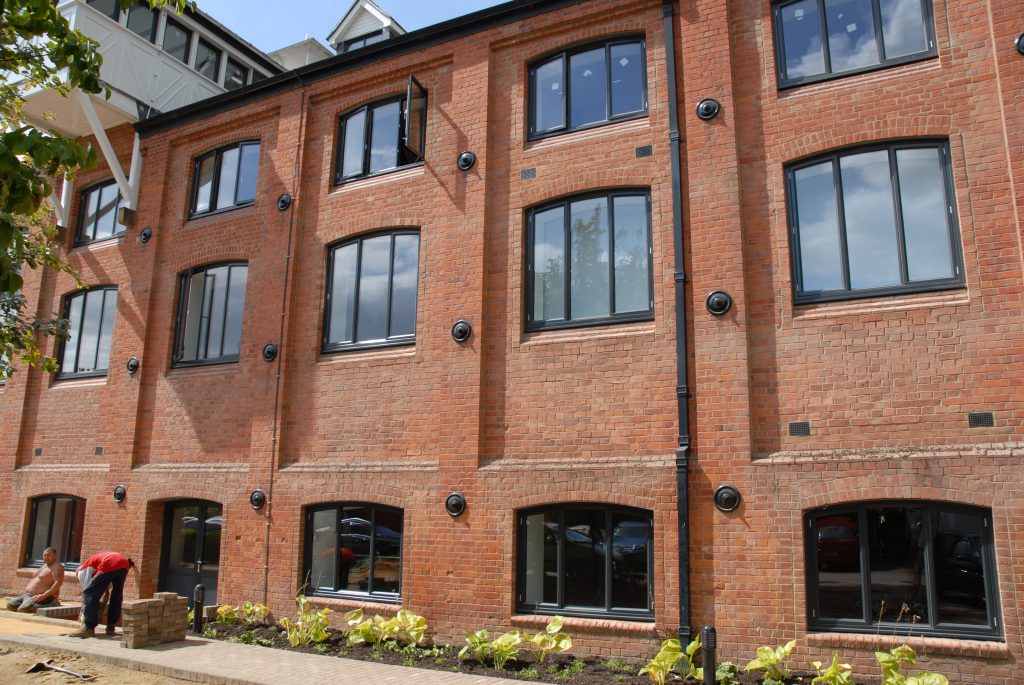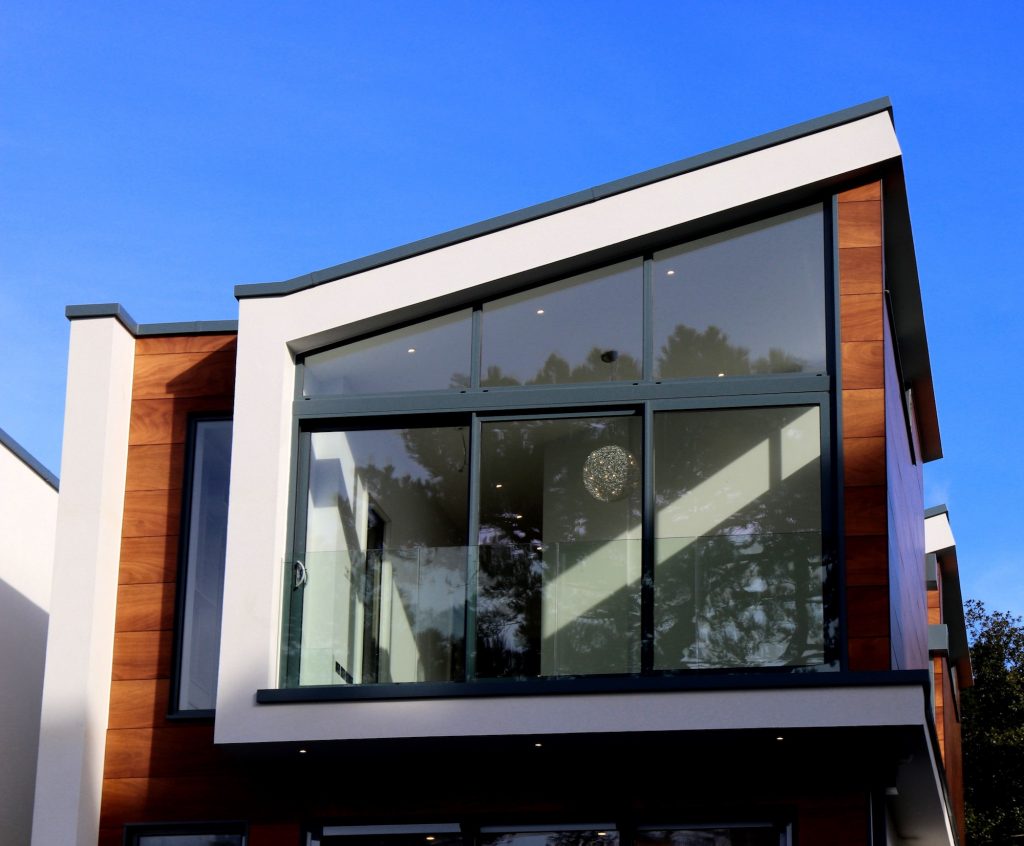Double glazing comes in many different forms depending on the frame material. This includes everything from traditional uPVC windows, wooden windows to the gold standard – aluminium windows.
As a structure that makes up 25% of the typical wall space, it’s worth taking the time to understand your windows. After all, not only do your windows need to look the part but they must perform excellently for many years to come. As a leading manufacturer and installer of aluminium windows here in the UK, here is our guide on how double glazing works to explain further.
Double Glazing: An Overview
Double glazing is defined as any window that contains two single panes of glass. Rather than being stacked directly on top of each other, each pane of glass is separated by a spacer bar to provide a gap of between 12mm and 16mm.
It is this gap that helps create the energy efficiency properties of double glazing, because air cannot circulate well within the gap, meaning the heat is retained in your home. A gas such as Argon can also sometimes be placed in the gap to boost the effectiveness of heat retention.
Although double glazing was thought to be invented in the 1930s, it was only in the 1980s onwards that it became popular. If you live in a period home that has not undergone significant modification, it’s likely you may have single glazed windows. If so, the room will feel cold to sit in during the colder months, and your energy bills will be higher because the heat is constantly escaping.
Single Glazing Vs Double Glazing
Quite simply, the difference between single and double glazing is that single glazing refers to one sheet of glass, whereas double glazing has two sheets.
The easiest way to describe why double glazing is better than single glazing is to think of how we wear more layers to keep warm in cold weather. By adding a warm jumper or coat onto a thin t-shirt, you are less likely to feel the effects of the cold. The same analogy can be used for double glazing, in that the extra layer of glass helps protect your home from heat loss, making it more energy-efficient in the process.
Double glazing also boasts better sound insulation, meaning less noise from traffic or construction versus single glazing. In addition, double glazing is generally a lot more secure than single glazing, especially if combined with an intelligent locking system.
uPVC Windows vs Aluminium Windows


Both uPVC windows and aluminium windows can be fitted with two panes of glass, providing excellent energy efficiency. However, the differences between the two stop there, as aluminium is a far superior material versus uPVC (unplasticized polyvinyl chloride).
Aluminium is a lightweight yet super strong material that also happens to be pretty malleable too. This means it can be bent into different shapes such as to make round windows. Therefore, aluminium offers endless aesthetic as well as practical advantages.
The cost of uPVC windows is less than aluminium windows. However, aluminium windows have a lot longer lifespan and will add more value to your property overall. In some cases, uPVC windows can be prohibited due to health and safety regulations (especially in commercial buildings), or if you live within a conservation area.
Signs Your Windows Need Replacing
- Broken or damaged glass
- Misted units (condensation in between two panes of glass)
- Poor energy efficiency
- Dated style that doesn’t suit the property
- Desire to change material frame type, such as from uPVC to aluminium
- Any security or structural concerns
Double Glazing UK
ABS produces aluminium windows for our clients across the UK. We offer a range of window styles that have two panes (double glazing) to provide an optimum level of style and performance for your building.
If you own a commercial building or residential dwelling, and you’re interested in getting aluminium windows you’re in the right place.
Please get in touch either by dropping us an email or giving us a call on 01623 721 172 where our friendly team is ready to assist you.

